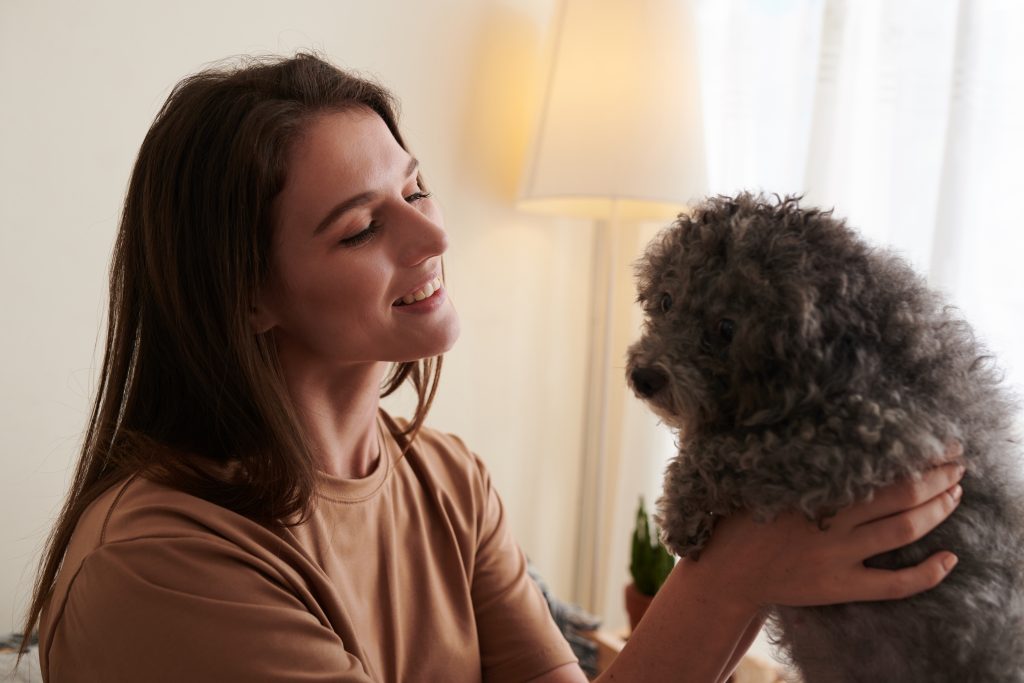As a pet parent, nothing breaks your heart more than witnessing your furry friend struggling with behavioral issues such as aggression or separation anxiety. Frustration and confusion become a daily routine when dealing with problematic behavior patterns that seem impossible to overcome. Fortunately, there are options out there to help your dog overcome their behavioral issues and live a happy, healthy life. Training classes tailored to addressing and managing these situations are an effective way to tackle the problem but should only be approached with professional behavior assistance. Before enrolling in a training program, an initial consultation with a behavior specialist is crucial to assess your dog’s specific needs, triggers, and history. For complicated cases, behavioral medications can be an effective tool in conjunction with training classes to help manage the behavior. Seek the help of a professional for a customized plan to help your furry friend.
Benefits Of Training Classes For Dogs With Behavioral Issues
Training classes for dogs with behavioral issues offer numerous benefits for both dogs and their owners. By enrolling in these classes, dogs can learn to overcome a wide range of behavioral issues, including aggression, anxiety, and unwanted behavior. With the help of professional trainers and behavior specialists, these dogs can develop new, alternative behaviors that allow them to respond appropriately to challenging situations. Moreover, these classes help to build the confidence of dogs, while also providing owners with the tools and management strategies needed to keep their dogs safe and happy.

Stimulation and Socialization for Dogs With Behavioral Issues
As a dog owner, dealing with behavioral issues in your furry friend can be a challenge. Some dogs may become aggressive or anxious due to a variety of reasons, such as traumatic events or lack of socialization. However, the good news is that there are ways to help them overcome these issues and live a happy, healthy life. Stimulation and socialization are two critical components that can help your dog recover from these behavioral traumas.
Stimulation is critical for any dog, but especially so for dogs with behavior issues. Without adequate stimulation, your dog can become anxious and isolated, which can make their behavioral issues worse. Socialization helps dogs to tolerate new stimuli, whether it’s people, other animals, or new environments. However, it’s essential to carry out socialization effectively to ensure that it doesn’t cause additional stress for your dog.
One way to socialize your dog is to encourage frequent interactions with other dogs in safe, controlled settings. Consider setting up playdates with dogs that your dog is comfortable around. Additionally, interacting with new people in safe environments can also help your dog. Inviting guests over and ensuring they approach your dog kindly can help your dog become more comfortable with new people. Slow and steady exposure to new stimuli is key.
Alongside socialization, mental stimulation is equally important to keep your dog engaged and occupied. Every dog has natural instincts such as hunting, scavenging, or chewing, and fulfilling these instincts with appropriate toys and games can help your dog channel any pent-up energy. Consider incorporating toys like food puzzles, treat dispensers, and interactive games into your dog’s daily routine to keep them mentally stimulated and occupied.
Incorporating training sessions into your dog’s routine is also essential for the overall mental and physical well-being of your dog. Use positive reinforcement methods to teach your dog new commands and tricks that will help to work their brains and engage their body. Remember to keep training sessions short and fun!
Promotes Positive Reinforcement Training Techniques
Positive reinforcement is a key training technique that can help dogs with behavioral issues like aggression and anxiety. Positive reinforcement involves rewarding desired behaviors, such as obedience and good social behavior, with praise or treats. This type of training encourages the dog to repeat behaviors that are beneficial for them and their owners. It also helps create strong bonds between owners and their pets by building trust.
Classes that focus on positive reinforcement techniques can be beneficial for dogs with behavioral issues, as it helps them learn to respond positively to commands and stimuli. Alongside providing mental stimulation and socialization, learning how to use positive reinforcement techniques is essential for owners of dogs with behavioral issues.
Boosts Your Bond With Your Dog Through The Training Process
Professional dog training programs not only teach your dog new behaviors, but they can also have a positive impact on your bond with your four-legged friend. Throughout the training process, you will have the opportunity to interact with and teach your dog, which can deepen your trust and understanding of each other.
One of the primary focuses of professional dog training is positive reinforcement. This means that your dog is rewarded for exhibiting desired behaviors, rather than punished for unwanted behavior. By using positive reinforcement, you can communicate more effectively with your canine companion and build a stronger bond.
During training sessions, you will also learn how to communicate effectively with your dog through body language. This can help you read your dog’s cues more accurately, improving your understanding of their needs and wants. When you communicate effectively with your dog, you create a two-way dialogue that fosters deeper understanding and trust.
Consistent training and reinforcement also establish leadership roles between you and your dog. By taking an active role in your dog’s training, you can demonstrate your authority in a positive and nurturing way. When your dog recognizes you as a confident and capable leader, they feel more secure and confident in their relationship with you.
As you and your dog work together toward common goals, such as learning new behaviors or completing a training program, you can further strengthen your bond. This shared experience of achievement can be incredibly rewarding for both you and your furry friend.
Addresses Unwanted Behaviors Early On To Avoid Future Problems
Addressing unwanted behaviors in dogs early on is critical to avoid the escalation of these behaviors, which can lead to future problems. Some of the more common unwanted behaviors include excessive barking, chewing, and digging. While these behaviors may seem harmless at first, they can quickly escalate if not addressed in time.
One effective approach to addressing these unwanted behaviors is through behavior modification programs like those offered by Advanced Canine Development. These programs are specially designed to rehabilitate dogs with more involved behavior problems, helping them overcome their negative habits using positive reinforcement and other behavior modification techniques.
It’s important to note that the longer these unwanted behaviors are left unchecked, the more ingrained they become, making them much harder to change. That’s why it’s so crucial to address these behaviors early on.
Not only can unwanted behaviors be frustrating for dog owners, but they can also greatly impact the bond between owner and pet. By addressing these issues head-on with the assistance of a trained behavior professional, owners can regain control of their dog’s behavior and maintain a happy and healthy relationship with their furry companion.
Getting professional behavior assistance can also help ensure that the behavior modification plan is tailored specifically to the dog’s needs, maximizing the chances of success. And, ongoing behavior modification can help reinforce positive behaviors and prevent relapses, setting both the dog and owner up for long-term success.
Types Of Training Classes Available For Dogs With Behavioral Issues
There are a variety of training classes available for dogs with behavioral issues, each designed to address specific concerns. From aggression to separation anxiety, these classes are taught by behavior specialists and professional dog trainers who use behavior modification techniques to help rehabilitate dogs with unwanted behaviors. Below are some of the most common types of training classes available for dogs with behavioral issues.
Puppy Kindergarten Classes For Socialization and Basic Training Skills
Puppy Kindergarten Classes are an excellent way to introduce puppies to socialization and basic training skills. These classes are specifically designed for puppies aged between 8-16 weeks, which is an age when puppies are at their most receptive to learning.
During Puppy Kindergarten Classes, puppies are introduced to other puppies and people, allowing them to learn essential socialization skills. Puppies need to learn how to interact with different dogs and people, which can help prevent behavioral issues in the future.
In addition to socialization skills, puppies are also taught basic obedience commands such as sit, stay, come, and heel. These commands form the foundation of a puppy’s training and help to establish good behavior in the future.
Puppy Kindergarten Classes also focus on important areas such as potty training, crate training, and bite inhibition. Potty training is essential for establishing good hygiene habits, while crate training helps puppies feel secure and prevents destructive behavior. Finally, bite inhibition helps to teach puppies the appropriate level of force during play, preventing accidental injuries.
Overall, Puppy Kindergarten Classes provide a fun and interactive environment for puppies to learn and play. Puppies learn to be comfortable and confident in different situations, which is essential for preventing behavioral issues in the future. Owners are also provided with helpful training tips that can help reinforce good behavior outside of the classroom setting.
Obedience Classes To Re-enforce Training Basics And Address Specific Problem Areas
Obedience classes can be a game-changer for dogs with behavioral issues. These classes provide a structured training program that allows dogs to build upon their foundational skills, such as sit, stay, and come, while also providing an opportunity to address specific problem areas.
Professional trainers at obedience classes use positive training methods that redirect and avoid unwanted behavior while reinforcing good behavior. This approach helps dogs learn and retain new skills while building confidence and trust with their owners.
Furthermore, obedience classes offer individual attention to each dog, which can be especially helpful for those with behavioral issues. Unlike larger group classes, individual attention can be given to address specific areas where the dog is struggling.
Moreover, obedience classes can help address specific behavioral problems such as aggression or anxiety. Trainers can identify the triggers for the dog’s unwanted behavior and work to modify their responses in a positive way. They can also provide management strategies to help prevent unwanted behavior from occurring in challenging situations.

Conclusion
In conclusion, managing an aggressive dog involves weighing the risks and prognosis of behavior modification protocols. Some families have found success through professional assistance in modifying their dog’s behavior, while others may find it challenging to manage on their own. Dog owners must ask themselves important questions, such as whether they can safely manage their dog without unintentionally harming themselves or others. Follow-up is also crucial in ensuring that the behavior modification plan is effective, and behavioral medications can provide a convenient solution to manage aggressive tendencies. Overall, with the right support and approach, it is possible to improve an aggressive dog’s behavior and provide a safe and happy home for both the dog and their family.



